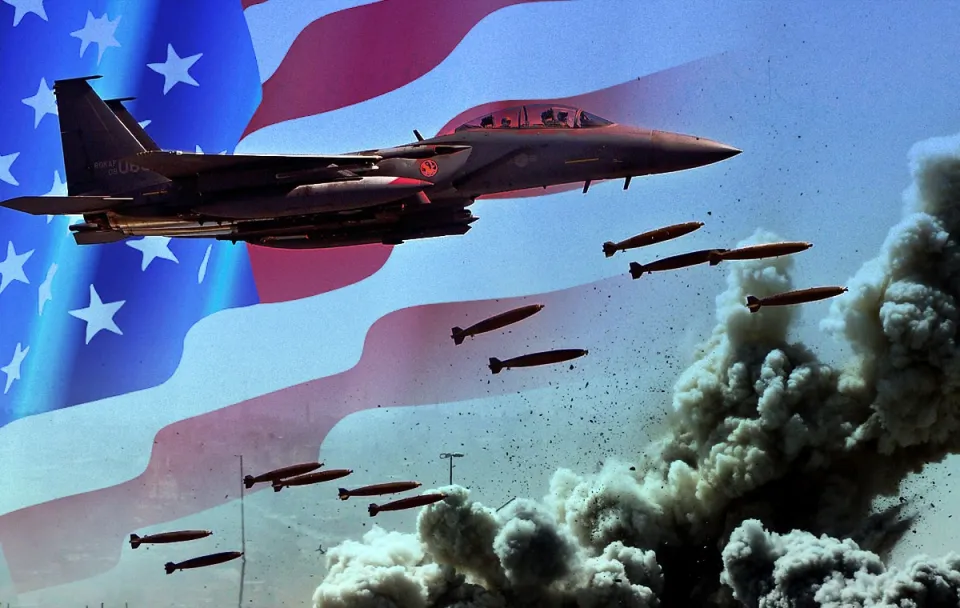By John Stapleton
The ancient, once beautiful city of Raqqa in Syria lies in ruins. The smell of death is everywhere.
Victory over Islamic State, which declared the city its capital in 2014, is all but complete and expected to be announced at any time.
The Syrian Democratic Forces (SDF), an alliance of Kurdish and Arab militias backed by a US-led international alliance, have been fighting Islamic State inside Raqqa since June.
A senior SDF commander, Brigadier General Talal Sillo told the AP on Wednesday morning (AEST) that major fighting in Raqqa had ended and his forces were in control, combing the city for land mines and searching for any IS sleeper cells.
General Sillo said a formal declaration that Raqqa has fallen would be made soon, once troops finish their clearing operations in the city on the banks of the Euphrates River.
Since Sunday’s final assault hundreds of IS fighters have either been killed, fled the city using human shields or have surrendered. Those remaining, believed to be a hardcore of foreign recruits, are expected to fight to the death.
Video footage from the frontline shows soldiers working their way through scenes of almost unbelievable desolation, street after street where every single building has been destroyed.
Video footage of children killed or injured as a result of a relentless barrage of Coalition airstrikes have fuelled jihad propaganda and anti-American sentiment worldwide.
At the centre of the fighting lies the famous Paradise Square at the city centre, once loved by locals for its famous ice cream parlour.
After 2014 it became emblematic of Islamic State’s harsh rule, a scene of frequent public executions and beheadings.
The SDF announced on Monday it had finally seized control of the hugely symbolic Square after four months of fighting.
But despite significant military losses over the past six months, including the fall of Mosul, whether defeat in Raqqa will mark the end of Islamic State is a moot point.
One of the world’s leading experts on Islamic State Graeme Wood, author of The Way of the Strangers, has repeatedly warned that a failure to understand the religious underpinning of Islamic State has led to the waste of billions of dollars in trying to defeat them militarily.
While Islamic State warriors, who see themselves as key players in a coming Apocalypse, are now fighting to the death in the ruins of Raqqa, the very devastation of Raqqa plays into these beliefs.
Mr Wood told The New Daily: “Coalition bombing has destroyed the city of Raqqa, and the most important surviving power-centre of the Islamic State along with it. Residents of Raqqa might decide that IS’s harsh rule was preferable to living in a pile of rubble.”
With extremely high civilian casualties, the US strategy of essentially carpet bombing Middle Eastern cities into ruins and then claiming victory is being widely questioned.
In July, Amnesty International accused Australia of potential war crimes after more than 40,000 civilians were killed in nearby Mosul, and such accusations may arise again in Raqqa.
Sarah Leah Whitson, Executive Director of HRW’s Middle Eastern Division, told The New Daily: “We have very serious concerns about the unlawful and indiscriminate strikes carried out by the anti-IS coalition. We are deeply disturbed by an apparent new level of laxity in targeting since the Trump administration came to power.
“No one should be under any illusion that the defeat of IS in Raqqa will end Syria’s problems. First and foremost, the horrors of the Assad government far outstrip anything IS has ever done.”
There are also numerous concerns that Australia’s involvement in the US-led Coalition in Iraq and Syria has had a galvanising impact on the radicalisation of and alienation of Australian Muslims.
Leading Muslim spokesman Keysar Trad told The New Daily: “I am a longterm critic of IS and its murderous ways, but bombs by their very nature are chaotic beasts whose damage cannot be fully controlled.
“These wars that coalition governments have dragged us into have cost many innocent lives and I know that the majority of Australians – speaking as one of them – do not want this on our conscience.”
Reliable figures place the number of deaths in Syria since the conflict began in 2011 at 470,000, with a further 6.1 million internally displaced and another 4.8 million seeking refuge abroad.
The Syrian Observatory for Human Rights has recorded almost 300 deaths since Friday, October 13.
Australia’s involvement in the bombing of Syria began two years ago under then prime minister Tony Abbott. Defence Department statistics updated this week show almost 200 incursions by Australian fighter planes into Syrian airspace so far this year.
-with AAP
